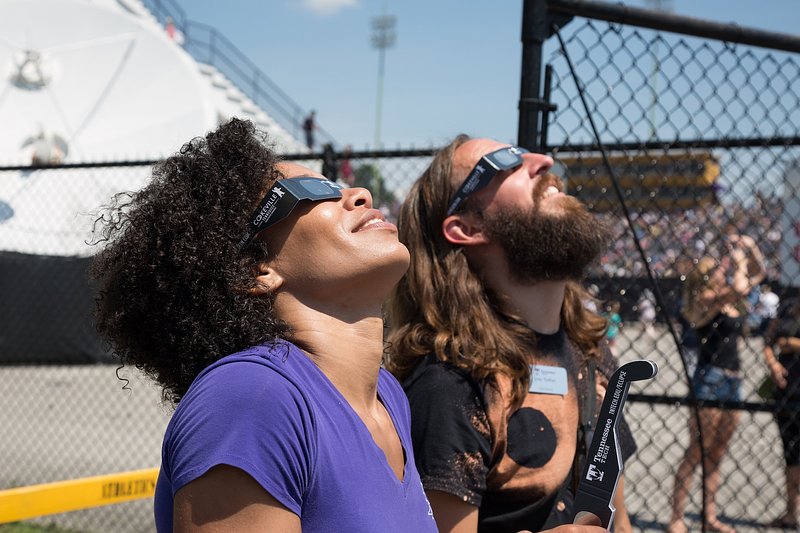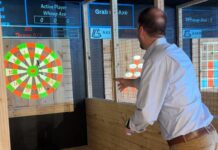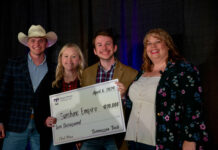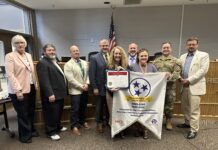Free eclipse glasses will be available
Cookeville – The physics department at Tennessee Tech University will host a watch party for the annular solar eclipse Saturday, Oct. 14 from 10:30 a.m. to 2 p.m. at the Laboratory Science Commons lawn on Tech’s campus. The event is free and open to the community.
The physics department will have materials for guests to create pinhole viewers to see the eclipse. Telescopes will also be set up for safe viewing and free eclipse glasses will be available while supplies last.
The eclipse is expected to be observable in the Cookeville area at 10:40 a.m. and will reach maximum eclipse at 12:07 p.m. The moon is expected to complete its passage between the sun and the earth around 1:37 p.m., marking the eclipse’s end.
“We very much enjoyed hosting the 2017 total solar eclipse viewing party and wanted to continue to provide the public with information about astronomy and with safe ways to view this eclipse,” said Mary Kidd, associate professor of physics at Tech.
Kidd says the event is also intended to serve as an unofficial kickoff for the forthcoming Astronomy Club – an idea that came directly from Tech student Mackenzie Henley, a Kingsport, Tennessee native and honors mechanical engineering major pursuing a concentration in aerospace.
“Mackenzie has been instrumental in organizing this event, from designing posters to planning the pinhole viewers,” said Kidd.
Kidd and Henley, along with other faculty and students in the physics department, are in the process of formally registering the Astronomy Club with the university. While Kidd emphasizes this is a partial eclipse and will be less striking than the total eclipse witnessed in 2017, she says it will still be noticeable and should not be viewed with the naked eye.
“This eclipse is happening at a time when the moon is a little further away from the earth, and so the moon won’t completely cover the sun, even during totality,” said Kidd. “Here in Cookeville, we are not in the path of totality. We will only see a partial eclipse. As time progresses through the eclipse, more and more of the sun will be covered by the moon, and eventually the sun will appear as a crescent.”
In 2017, Tech students, faculty, staff and community members packed Tucker Stadium to watch the total solar eclipse, a scene that played out in communities across the nation. Kidd says astronomical events have always had a way of bringing people together.
“Astronomical observations are common across all the cultures on Earth,” said Kidd. “I think that shared experience of seeing a big change in our daytime sky, and understanding what causes it, contributes to the public’s excitement. It is also a remarkable accomplishment that we can predict these eclipses to very high precision hundreds of years in advance, because we understand the physics of our solar system very well.”
Kidd adds that aspiring astronomers will want to start making their travel plans for the next total solar eclipse April 8, 2024.
“Unfortunately, its path does not cross Cookeville, but there are locations within a day’s drive where you could get to the path of totality!” said Kidd.
For more information email Mackenzie Henley at mlhenley42@tntech.edu.
Photo courtesy of Tennesseee Tech University.









